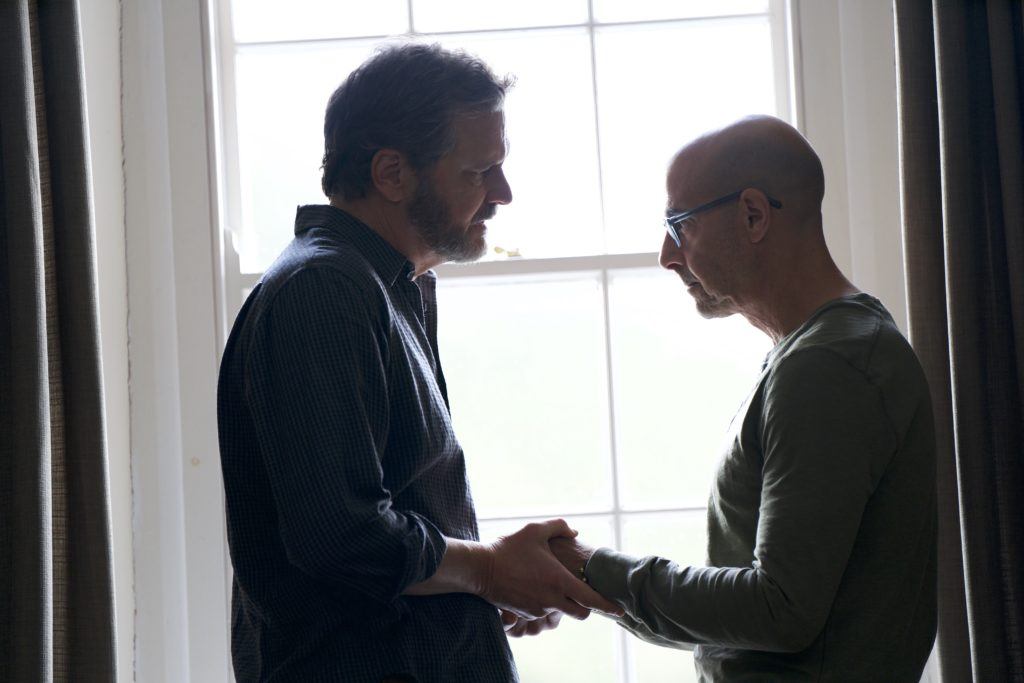Supernova

Colin Firth and Stanley Tucci star in SUPERNOVA. (Photo: Bleecker Street Media)
A dying man takes a road trip to say goodbye in Supernova, which finds fresh and complex nuances within such a familiar and simple concept.
Two understated yet deeply felt performances provide the emotional resonance in this modest British drama that mostly sidesteps heavy-handed sentimentality despite a predetermined outcome.
Sam (Colin Firth) is a concert pianist traveling around the English countryside in a motorhome with Tusker (Stanley Tucci), an American writer and his romantic partner of many years.
They’re heading to a dinner party with longtime friends, destined to be bittersweet because Tusker has early-onset dementia, and his fading memory is worsening. In other words, it will likely be the last time they will see each other, after which the couple will have to sort through their own emotional crisis.
As the nature and extent of Tusker’s affliction is revealed, their subsequent odyssey is littered with guilt, denial, acceptance, and various coping mechanisms. Although Tusker has come to terms reasonably well, Sam struggles with letting go. “I want to be with you every moment,” he explains.
The deliberately paced film takes its time establishing atmosphere and mood, but rewards patience even when it ventures into standard tear-jerking territory with an obligatory message about cherishing each day like it’s your last.
Depicting sexual preference with a refreshing nonchalance, the sharply observed screenplay by director Harry Macqueen works best in its moments of tender intimacy, when it avoids interference from strained plot mechanics. Perhaps the talky material would fit equally well on stage.
The opening scenes enable Tucci and Firth to build a convincing rapport through playful banter and passive-aggressive bickering — including an amusing exchange about Tusker’s annoyance with Sam’s GPS sounding like Margaret Thatcher.
They also convey the depth of their relationship through subtle glances and offhand gestures, even when their conversations become inevitably darker as Tusker’s condition gradually deteriorates.
Supernova does not trivialize dementia or exploit it as a cheap narrative device. More importantly, it doesn’t shy away from tough conversations that manage to be gut-wrenching, even heartbreaking, but don’t wallow in pity or false uplift. In this case, it’s true that success lies not in the destination, but in the journey.
Rated R, 93 minutes.